Gerardo Almaguer
President and Chief Executive Officer, Développement international Desjardins (DID)
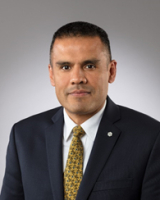 Gerardo Almaguer has been President and CEO at Développement international Desjardins (DID) since January 3, 2019.
Gerardo Almaguer has been President and CEO at Développement international Desjardins (DID) since January 3, 2019.
An engineer by trade, Mr. Almaguer also holds a master's degree in administration. He has had a long international career spanning almost 20 years and gained a deep understanding of DID, which he joined 15 years ago.
For almost four years, he managed the Entrepreneur Financial Center set up by DID in Panama. He also led the Project to Support Colombia’s Agricultural Finance System (PASAC) in Colombia and carried out a variety of other assignments within the organization. In 2016, he became Senior Director, Agricultural finance and Food security. He has extensive knowledge of how community finance institutions work and is well versed in the issues surrounding both agricultural and small business financing.
Jean-Charles Le Vallée
Canadian country representative, Inter-American Institute for Cooperation on Agriculture (IICA)
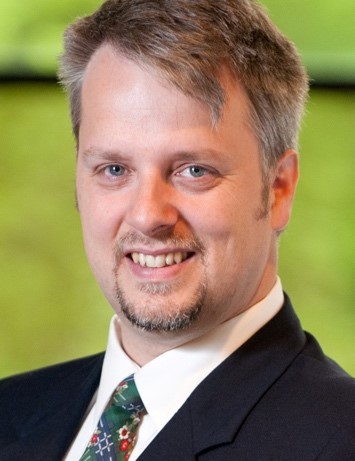 Dr. Jean-Charles Le Vallée is the Canadian country representative of the Inter-American Institute for Cooperation on Agriculture (IICA) with headquarters in Costa Rica. Before joining IICA, Jean-Charles was a former research associate director for agri-food at the Conference Board of Canada, agricultural economist at the World Bank, lead for food aid in Sub-Saharan Africa at Global Affairs Canada, Canada's first coordinator for the Food Security Bureau at AAFC, and consultant for ITK, IFPRI, USAID, FAO and the Development Gateway.
Dr. Jean-Charles Le Vallée is the Canadian country representative of the Inter-American Institute for Cooperation on Agriculture (IICA) with headquarters in Costa Rica. Before joining IICA, Jean-Charles was a former research associate director for agri-food at the Conference Board of Canada, agricultural economist at the World Bank, lead for food aid in Sub-Saharan Africa at Global Affairs Canada, Canada's first coordinator for the Food Security Bureau at AAFC, and consultant for ITK, IFPRI, USAID, FAO and the Development Gateway.
He has extensive international experience in leadership, teaching, and field research in more than a dozen countries in Africa, Asia, and Latin America, including universities such as Ryerson, UoOttawa, Cornell, Michigan State, and the World Food Prize Youth Institute. He is a co-founder of Food Secure Canada, Just Food Ottawa, and the Canadian Food Studies Association. He has over three dozen publications including a food strategy for Canada, a book on food system resilience in Belize, and a book chapter in India to foster political will for food security. He has served as a jury member for Canada's Food Waste Reduction Challenge, Statistics Canada's Agri-Food Committee, the Global Food Systems Countdown Initiative 2030, advisor to Canada's Climate Action Genomic Initiative, and witness at several senate standing committees on food policy, food trade, agriculture and more.
Patrick Cortbaoui
Managing Director, Margaret A. Gilliam Institute for Global Food Security
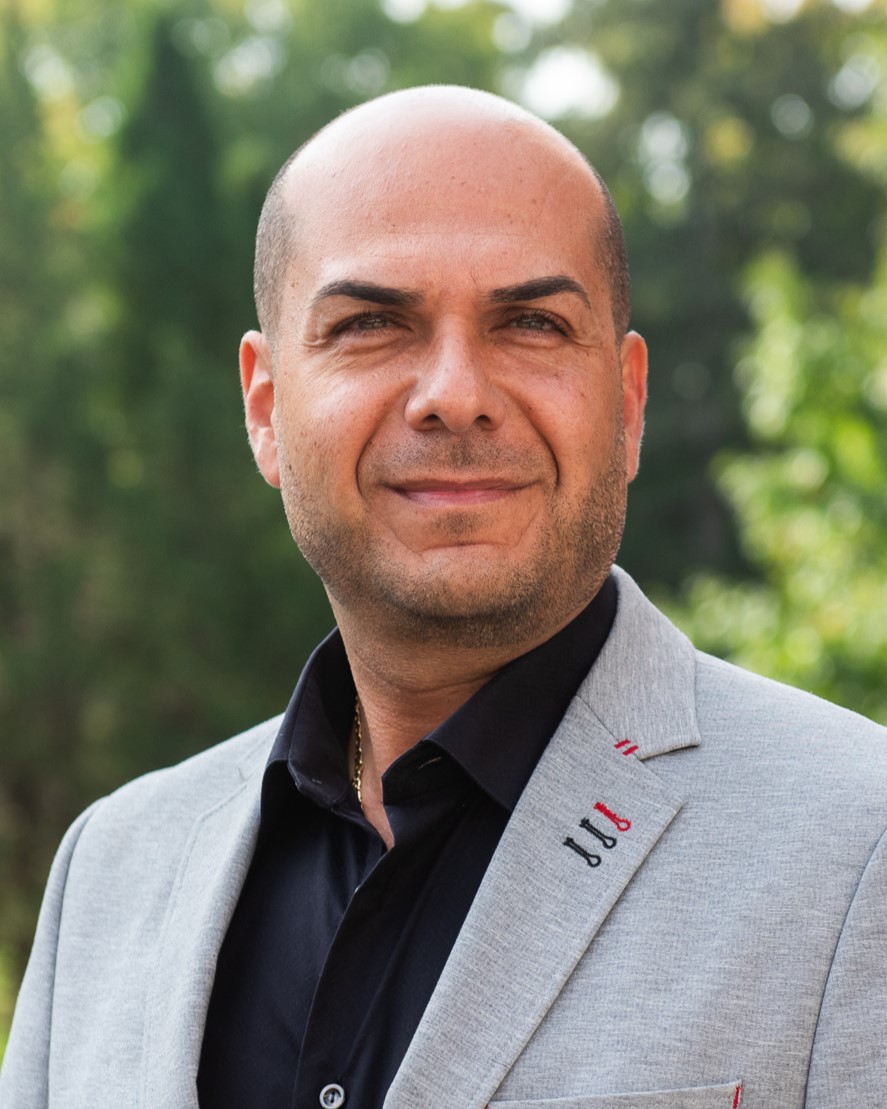 Patrick Cortbaoui is an agricultural engineer, food security consultant and project manager with over 12 years track record in providing solutions to alleviate food insecurity in different regions of the world including North America, Latin America & the Caribbean, Africa, Middle East and Asia. This is done through the establishment and implementation of pre-/post-production technologies and sustainable food management strategies and programs that meet the requirements of the producer, the retailer and the consumer while improving resource-use efficiency along agri-food value chains. He has wide expertise in management encompassing Research-for Development, Partnership Building and Resource Mobilization, Strategic and Operational Planning, Communication and Outreach Management, and Team Mentoring and Training.
Patrick Cortbaoui is an agricultural engineer, food security consultant and project manager with over 12 years track record in providing solutions to alleviate food insecurity in different regions of the world including North America, Latin America & the Caribbean, Africa, Middle East and Asia. This is done through the establishment and implementation of pre-/post-production technologies and sustainable food management strategies and programs that meet the requirements of the producer, the retailer and the consumer while improving resource-use efficiency along agri-food value chains. He has wide expertise in management encompassing Research-for Development, Partnership Building and Resource Mobilization, Strategic and Operational Planning, Communication and Outreach Management, and Team Mentoring and Training.
He currently serves as the Managing Director at the Margaret A. Gilliam Institute for Global Food Security of McGill University, strengthening the Institute’s role and partnership between academia, the private sector, governments and NGOs. In this capacity, he oversees all operations, functions and activities of the Institute. He is responsible for giving the proper strategic direction and implementing a high-quality vision. Dr. Cortbaoui received his PhD. in Bioresouce Engineering from McGill University. His interest was to develop and validate engineering solutions to reducing post-harvest losses of fresh fruits and vegetables thereby increasing food availability without compromising the environment.
Anja Geitmann
Interim Vice-President (Global Engagement), McGill University
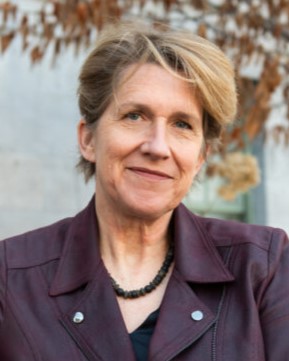 Anja Geitmann is Interim Vice-President (Global Engagement) of McGill University and a Professor in the Department of Plant Science. She also holds a Canada Research Chair (Tier 1) in Biomechanics of Plant Development. She leads an interdisciplinary team of cell biologists and mechanical engineers. Her research program focuses on the biomechanical principles underlying plant development and reproduction. Using powerful microscopical techniques and micromanipulation, her team investigates how sperm cells are delivered in plants during fertilization, how plant cells grow and divide, and how intracellular transport processes govern morphogenetic features. The ultimate goal of this research is to understand how genetic composition or a plant translates to its physical phenotype.
Anja Geitmann is Interim Vice-President (Global Engagement) of McGill University and a Professor in the Department of Plant Science. She also holds a Canada Research Chair (Tier 1) in Biomechanics of Plant Development. She leads an interdisciplinary team of cell biologists and mechanical engineers. Her research program focuses on the biomechanical principles underlying plant development and reproduction. Using powerful microscopical techniques and micromanipulation, her team investigates how sperm cells are delivered in plants during fertilization, how plant cells grow and divide, and how intracellular transport processes govern morphogenetic features. The ultimate goal of this research is to understand how genetic composition or a plant translates to its physical phenotype.
Dr. Geitmann is actively involved in the executive committees of numerous learned societies. She currently serves as President of the Canadian Society of Plant Biologists and as Past‐President of the Microscopical Society of Canada. She is the Vice-President of the International Association of Plant Sexual Reproduction Research. She serves on the editorial boards of multiple scientific journals including Plant Physiology. She has served on the organizing committees of numerous international meetings including Plant Biology 2010, Plant Biology 2014, M&M 2014 and Botany 2015. She was the organizer of the first Alumni Meeting of the Human Frontier Science Program, the International BIRS Workshop on 'Multiscale Modeling of Cell Wall Mechanics and Growth in Walled Cells' and a biannual series of Advanced Workshops on Fluorescence Microscopy Techniques. The quality of her teaching merited her a Teaching Award from the Faculté des Arts et des Science de l'Université de Montréal in 2012.
Richard Morgan
Executive Director, Humanitarian Coalition
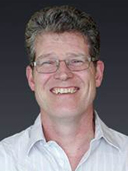 Richard Morgan is the Executive Director of the Humanitarian Coalition, an Ottawa-based organization that brings together 12 of Canada's leading international humanitarian agencies. Previously he served as Associate Vice President for Advancement at Trent University in Peterborough, and as Coordinator of Financial Resources for Development and Peace in Toronto. He has a MA in Sustainability from Trent University and a BA in International Relations from Glendon College of York University.
Richard Morgan is the Executive Director of the Humanitarian Coalition, an Ottawa-based organization that brings together 12 of Canada's leading international humanitarian agencies. Previously he served as Associate Vice President for Advancement at Trent University in Peterborough, and as Coordinator of Financial Resources for Development and Peace in Toronto. He has a MA in Sustainability from Trent University and a BA in International Relations from Glendon College of York University.
Gisèle Yasmeen
Associate Vice-President, International, University of Ottawa
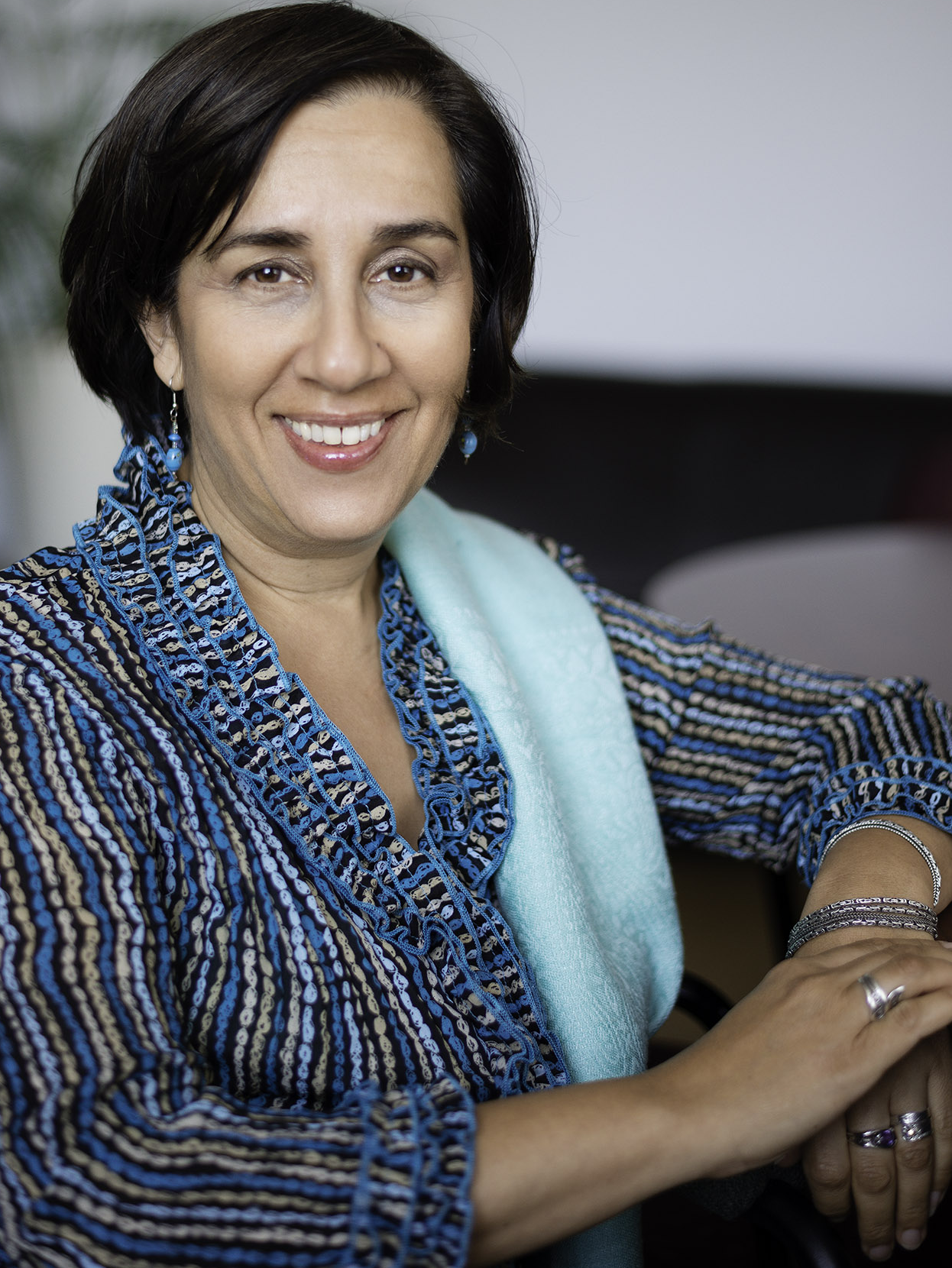 Gisèle has been Associate Vice-President, International at uOttawa since February 2023. She was a Senior Fellow at the Institute of Asian Research – part of the School of Public Policy and Global Affairs - from 2014 to 2023. Her expertise is on food-systems in Asia, on which she has published and consulted widely since the early 1990s with both Canadian and international clients. She is also affiliated with the Margaret A. Gilliam Institute for Global Food Security at McGill University and Associate Faculty at the School of Environment and Sustainability at Royal Roads University. Until recently, Gisèle was Executive Director of Food Secure Canada – a pan-Canadian bilingual organization with policy influence for nearly three years. She is a former senior federal government executive and has advised numerous Canadian and international clients and has served on numerous boards of directors. She provides regular media commentary in English and French and has studied Spanish, Thai, Urdu and Mandarin. Gisèle has a Ph.D. from UBC, a master’s from McGill and a BA Honours from the University of Ottawa.
Gisèle has been Associate Vice-President, International at uOttawa since February 2023. She was a Senior Fellow at the Institute of Asian Research – part of the School of Public Policy and Global Affairs - from 2014 to 2023. Her expertise is on food-systems in Asia, on which she has published and consulted widely since the early 1990s with both Canadian and international clients. She is also affiliated with the Margaret A. Gilliam Institute for Global Food Security at McGill University and Associate Faculty at the School of Environment and Sustainability at Royal Roads University. Until recently, Gisèle was Executive Director of Food Secure Canada – a pan-Canadian bilingual organization with policy influence for nearly three years. She is a former senior federal government executive and has advised numerous Canadian and international clients and has served on numerous boards of directors. She provides regular media commentary in English and French and has studied Spanish, Thai, Urdu and Mandarin. Gisèle has a Ph.D. from UBC, a master’s from McGill and a BA Honours from the University of Ottawa.
Martin Webber
Executive Vice President and Partner, J.E. Austin Associates, Inc.
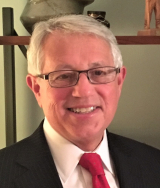 Martin Webber is co-owner of J.E. Austin Associates, a Washington DC-based consultancy that catalyzes economic growth in developing and emerging economies through responsible and competitive business performance. He is a leading expert in fostering agribusiness and enterprise development, entrepreneurship, business and sector strategy, and competitiveness.
Martin Webber is co-owner of J.E. Austin Associates, a Washington DC-based consultancy that catalyzes economic growth in developing and emerging economies through responsible and competitive business performance. He is a leading expert in fostering agribusiness and enterprise development, entrepreneurship, business and sector strategy, and competitiveness.
Mr. Webber has worked in more than 75 countries, leading insightful analysis, program design and implementation. He has supervised and implemented hundreds of assignments, ensuring transfer of skills and knowledge, impactful deliverables, and close communication with clients. He leads JAA’s agribusiness and market systems, decentralized economic development, value chain strategy, and entrepreneurship & ecosystems practices. Martin has advised National Competitiveness Initiatives in 12 countries. He has served as strategy consultant and technical advisor to more than 35 agribusiness and other clusters and 50 value chain initiatives. He has developed numerous analytical tools and implementation approaches that are now widely used by practitioners and advisors. His current assignments include building the competitiveness of the processed food industry in Ukraine, working with stakeholders to develop high value agriculture in Guyana, re-establishing market linkages in eastern DRC through the bean, soy and coffee value chains, and encouraging investment in Nigerian agriculture through improved Federal and State-level policies.
A graduate of McGill University’s Faculty of Management, Mr. Webber is from Montreal, where he maintains strong ties.
Carola Weil
Dean of Continuing Studies, McGill University
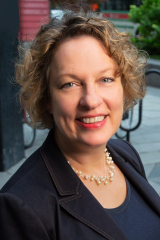 Since 2018, Dr. Carola Weil has served as Dean of Continuing Studies, McGill University’s interdisciplinary faculty dedicated to adult professional education, experiential and community-based learning. Specialized in organizational development, human security and conflict transformation, and humanitarianism, Dr. Weil’s career has straddled public policy, non-profit and philanthropic sectors in addition to higher education. She has held teaching, research and administrative appointments at leading universities in the United States, including at the Center for International Development and Conflict Management University of Maryland, supported grantmaking in conflict zones in sub-Saharan Africa, Asia and Latin America, and co-founded and directed an international non-profit network, Women In International Security (WIIS). Carola Weil has authored or co-authored studies on humanitarian intervention, critical information needs of communities, humanitarianism as well as on topics related to gender and inclusion.
Since 2018, Dr. Carola Weil has served as Dean of Continuing Studies, McGill University’s interdisciplinary faculty dedicated to adult professional education, experiential and community-based learning. Specialized in organizational development, human security and conflict transformation, and humanitarianism, Dr. Weil’s career has straddled public policy, non-profit and philanthropic sectors in addition to higher education. She has held teaching, research and administrative appointments at leading universities in the United States, including at the Center for International Development and Conflict Management University of Maryland, supported grantmaking in conflict zones in sub-Saharan Africa, Asia and Latin America, and co-founded and directed an international non-profit network, Women In International Security (WIIS). Carola Weil has authored or co-authored studies on humanitarian intervention, critical information needs of communities, humanitarianism as well as on topics related to gender and inclusion.
A dual citizen of Germany and the US, she holds a PhD and Master’s in Political Science (International Relations/Security), a MPM in Public Management from the University of Maryland, and a Bachelor’s Degree in History from Bryn Mawr College. She is multi-lingual and has lived, worked or travelled on most continents.
